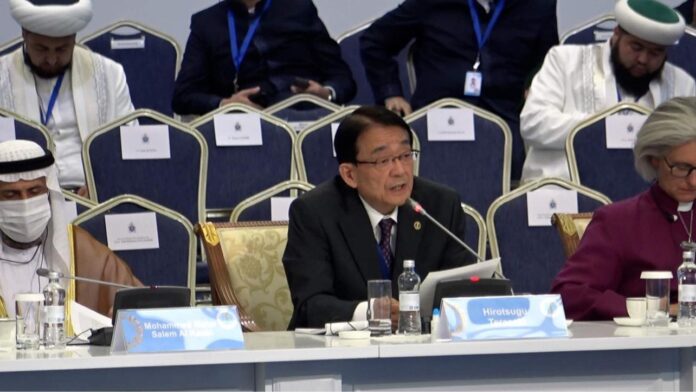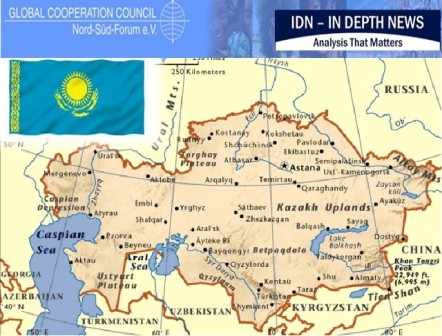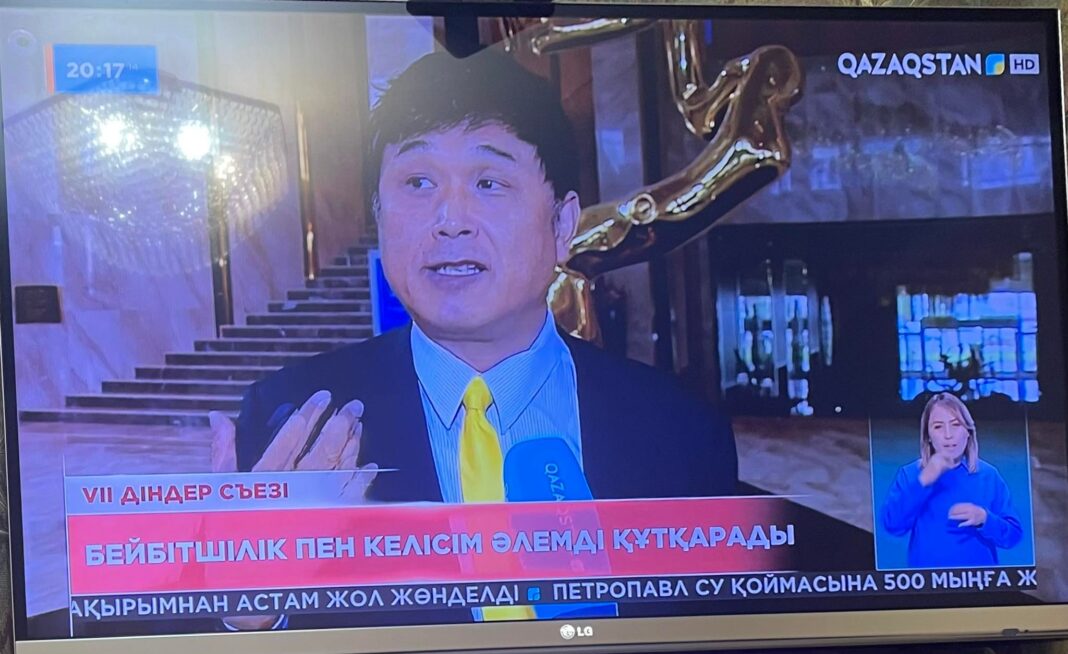By Katsuhiro Asagiri
Astana (INPS Japan) — In advance of the “7th World Congress of Leaders of World and Traditional Religions” to be held in the capital city of Kazakhstan, Nur-Sultan, on September 14th and 15th (hosted by Kazakhstan every three years since 2001, this year’s congress is being held after a four-year hiatus due to the impact of COVID-19), local television stations interviewed journalists from around the world who have gathered for the event.

The theme of this year’s congress is “The Role of Religious Leaders in the Spiritual and Social Development of Humanity in the Post-Pandemic Period.” The congress was initiated by the call of leaders such as Pope John Paul II of the Vatican and the first president of Kazakhstan, Nursultan Nazarbayev, to address the exclusivism and extremism targeted at specific religions that arose in the aftermath of the 9/11 terrorist attacks under the guise of combating terrorism. Traditional religious leaders from around the world have taken the initiative to engage in dialogue and explore peace and cooperative relationships. This year marks the 20th anniversary of the congress, with delegations from over 100 representatives from 50 countries around the world, including the Catholic Church’s Pope Francis, the Church of England, the Russian Orthodox Church, the Baha’i Faith, Islam, Hinduism, Buddhism, Judaism, Jainism, and Shintoism, among others, participating.

Kazakhstan is a multicultural and multi-religious country where more than 130 ethnic groups coexist. The background for Kazakhstan providing the platform for the “World Congress of Leaders of World and Traditional Religions” is due to the Kazakh people’s social background of accepting various ethnicities, thoughts, and technologies that have traveled east, west, north, and south as a relay point of the Silk Road, and their political background of skillfully promoting peace and good neighborly diplomacy not only with Russia and China, but also with Western countries such as Europe, Japan, and Middle Eastern and African countries with a relatively small population to stabilize their vast land.
The congress is being held in the midst of a crisis where humanity’s existence is at stake, with a pandemic of COVID-19 that has lasted for three years and a threat of invasion of Ukraine and the use of nuclear weapons. In response to the interview by the state-run Kazakh television station, I commented that “in a critical situation where one mistake can lead to the destruction of everything, the dialogue and cooperation of traditional religious leaders from around the world, who can deeply appeal to the essence of humanity and conscience, is a ‘light of hope’.”


